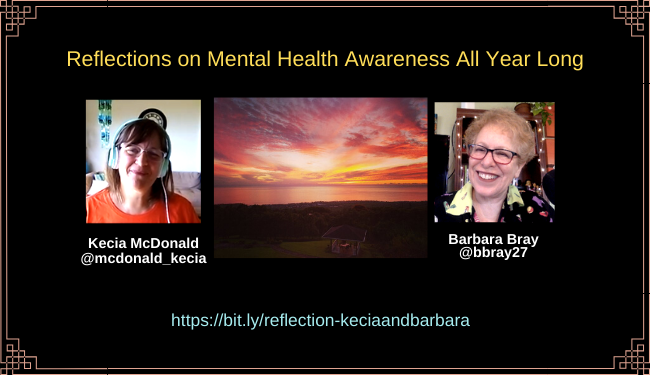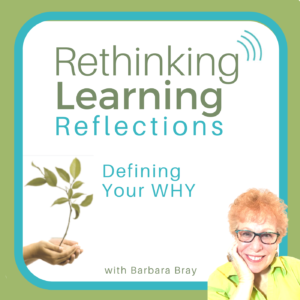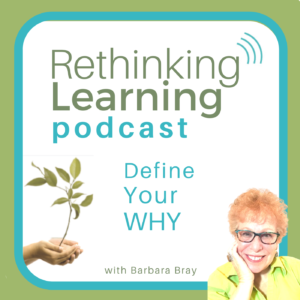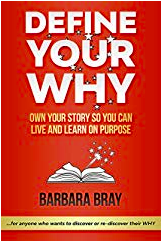
Podcast: Play in new window | Download
Subscribe: Spotify | TuneIn | RSS
I am so honored to know Kecia McDonald and to learn why mental health awareness is important all the time. Kecia is Curriculum Coordinator at Kealakehe Intermediate School and a certified health teacher for K-12. I reached out to Kecia to reflect on positive mental health.
What is good mental health? Why is it a right to have good mental health?
Kecia: According to the World Health Organization, it’s “a state of well-being in which every individual realizes his or her own potential, can cope with the normal stresses of life, can work productively and fruitfully, and is able to make a contribution to her or his community.” There’s a lot to unpack in just that sentence, so let me dive a little deeper into what it looks like.
Good mental health is characterized by a person’s ability to fulfill a number of key functions and activities, including the ability to learn; the ability to feel, express and manage a range of positive and negative emotions; the ability to form and maintain good relationships with others. (learn, self regulate, communicate, collaborate) Ultimately, good mental health is about being cognitively, emotionally, and socially healthy – the way we think, feel, and develop relationships – and not merely the absence of a mental health condition.
Signs of good mental health are:
- you are confident when faced with new situations or people.
- you feel optimistic.
- you don’t always blame yourself.
- you set goals.
- you feel good about yourself.
- you have good self-esteem.
Doesn’t that sound like something every human being has the right to? And wouldn’t the world be a better place if everyone did?
Why are the stories of the struggles that students, teachers, and families are going through real?
Barbara: The struggles are real for everyone during this pandemic. Work, businesses, banking, and school as we know them have been completely disrupted at all levels. There are many people who are “essential” workers who work as first responders, medical personnel in hospitals, delivering packages and so many more including our teachers who are our heroes. With the stay-at-home order, families are working from home and trying to balance work, parenting, and being responsible for their children’s learning. Teachers are responsible and still held accountable for what their students are learning yet not every family has access. Family, friends, and teachers who I know on social media have reached out to me to share their frustrations. There really is no way they could teach the same way they taught face-to-face. But many teachers have never taught online before. Teachers who are also parents mentioned that distractions make it difficult to teach.
After many weeks of “sheltering-in-place,” people are experiencing quarantine fatigue. The news is scary and living in an uncertain world is troubling. The challenge for teachers will be how to continue to build culture and keep the relationships going with students and families in a remote and possibly a hybrid environment.
What do teaching and learning look like now and how will it look later after COVID 19?
Kecia: Right now, teaching and learning look like a wide range of realities being experienced by individuals all over the map, on extreme ends of the spectrum. Let me give you a few examples directly related to the mental health of our community: I have spoken to a straight-A student who excelled at all levels of brick and mortar school but admits she is struggling to keep a schedule, motivation, and focus now during emergency remote learning. On the other end of the spectrum, I have spoken with another student who had missed a lot of days of school in the year, due to both behavioral and personal problems. This student told me they are happy to be home, they feel safe and cozy, and they are really enjoying the one-on-one attention from teachers and the ability to make up missing work. I am seeing that same range in teachers: some are so stimulated and driven to contribute they are working 16 hour days, and I know others who are distracted, emotional, and unable to focus.
Thankfully, the state of Hawaii adopted a “no harm” policy from the beginning, meaning teachers are providing enrichment activities only and we are not assigning grades. I feel this is the most humane policy from a mental health point of view, but in fact, we had to enact this policy due to equity issues in our communities.
Why does inequity continue to be a challenge?
Kecia: In Hawaii, we have both teachers and students without access to either digital devices or the internet, and simply could not require all students to participate in the same way and so extended grace. When the “emergency response” period ends and we have to return to a new normal, that grace will look different but the inequities will still exist.
Barbara: This crisis has exposed the inequities and disparities that have always been there. There are many communities where families live one paycheck away from bankruptcy or homelessness. Now with the large numbers of unemployed, we are seeing that there is no safety net for families making less than $40,000 especially now with small businesses in trouble. We need to consider the people who are doing the work and help them. We need our small businesses including family farms to be here for us. We probably won’t have a “normal” as we had before, but something has to change so we provide the safety nets for everyone. We need to look at health care for all since all of us are connected more than we thought we ever were before.
Why do all of us need to be health teachers?
Kecia: I used the comparison to digital citizenship and 21st-century skills; how teachers will say, well, I’m not a computer teacher or I’m not a media teacher but, in fact, we know all our kids will need those skills to succeed and so we all must support those skills. If we go back to the definition of mental health, we can see those are also skills our students will also need to succeed. Mental health includes emotional, psychological, and social well-being. It affects how we think, feel, and act. It also helps determine how we handle stress, relate to others, and make choices. Mental health is important at every stage of life, from childhood and adolescence through adulthood. The best way to foster a new generation of community contributors is to teach our students how to take care of their mental health.
Kecia: How does having a sense of purpose matter for our mental health?
Barbara: When we go through these uncertain times, we may have lost our purpose. This crisis causes us to question who we are and our value. Many have lost their jobs or even lost loved ones. The stress can be unbearable. When we are under stress and feel lost, we may give up and not feel we have a reason to get up every morning. Yet, the struggles can also help us see other possibilities because during this crisis we have had to pause, rethink everything. I wrote my book “Define Your WHY” before the pandemic and now I’m focusing on “Re-Defining Your WHY” to discover a new sense of purpose. I shared “ikigai” which is the Japanese concept for the reason for being. Everyone has an “ikigai.”
Our ikigai is different for all of us, but one thing we have in common is that we are all searching for meaning. ~ Hector Garcia Puigcerver
I found that ikigai helped me when I was struggling. I remembered what I love: stories. I may have lost all of my jobs, but I had the stories. I could read and continue my podcasts to learn about the stories of people who inspire me. Another element to discover now was what I was good at. I know that I love to write and thought about more posts, reflections, and maybe another book. I had some ups and downs and ikigai helped me find me and my purpose. If we have a reason to get up every morning, that purpose, we can get through this crisis and any other difficult times.
Kecia added…
Mental health deserves to be valued and honored as much as physical health, or what is becoming much talked about in the educational world, social and emotional health. All aspects of health are interrelated and need to have clear and visible support. A child who breaks an arm, or gets a rash, or has a toothache knows that a trip to a healthcare professional is needed but does a child who suffers from anxiety, or a mood disorder feel the same way? Was that child ever taught to recognize signs of poor mental health? or that they have the right to good mental health: to feel confident, to feel optimistic, to set goals, to have good self-esteem? This is why we ALL need to be health teachers, to normalize and destigmatize mental health issues, and not save mental health awareness for a special day or a special month. Every day should be mental health awareness day and if we can do so we will see a happier, healthier, and more successful community and society.
Our legislature just passed a bill to require all teachers to undergo special training to support mental health! Act 270 says: “The department, in collaboration with the department of health, shall develop a mandatory youth suicide awareness and prevention training program and a model risk referral protocol for complex areas and charter schools based on the department of health’s existing suicide awareness and prevention curriculum and materials, which shall be provided to teachers, teacher assistants, administrators, and counselors [by Sept. 30, 2020].”
Contact information for Kecia
@mcdonald_kecia keciamac1@gmail.com
*****
RESOURCES FOR SUICIDE PREVENTION
National Suicide Prevention Lifeline
1-800-273-8255 (1-800-273-TALK)
- https://suicidepreventionlifeline.org/
- https://www.who.int/health-topics/suicide#tab=tab_1
- https://www.nimh.nih.gov/health/topics/suicide-prevention/index.shtml
- https://www.psychiatry.org/patients-families/suicide-prevention

*****

For all of the Rethinking Learning podcasts with Barbara Bray, click on the podcast tab at the top, the logo below, or go to https://barbarabray.net/podcasts/
make sure you go to the bottom of the podcast page to access the posts that go with each podcast.
Go to this page for resources, questions, and more information about Barbara’s new book, Define Your WHY.







[…] out Reflection #4 on Mental Health Awareness with Kecia and […]